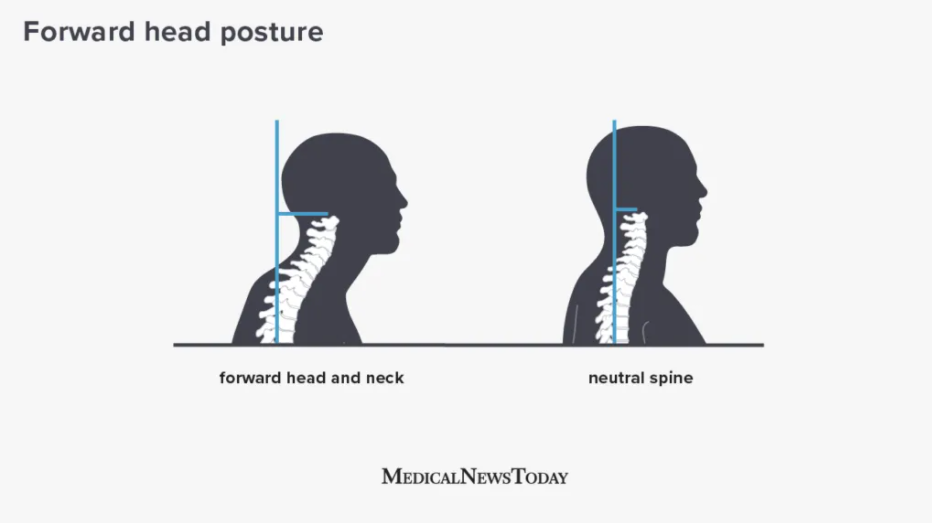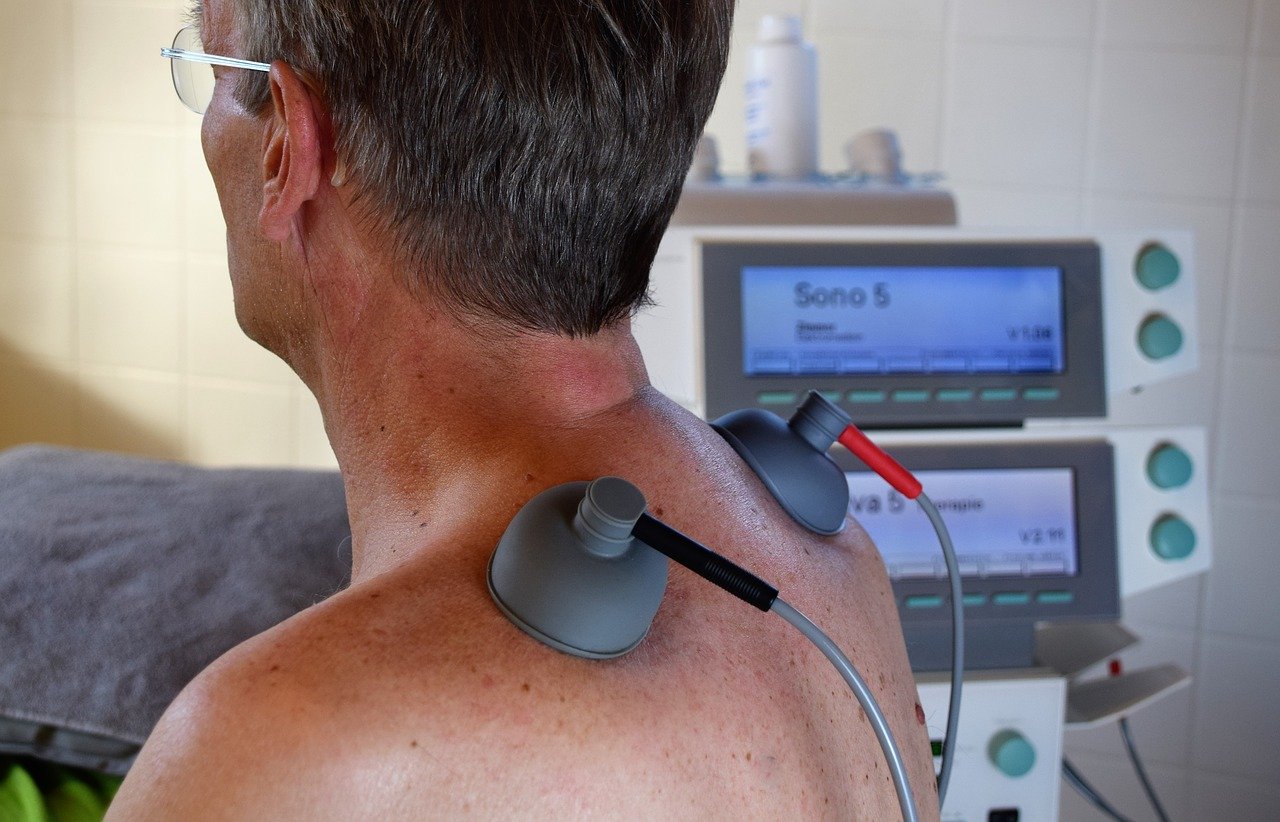When a person maintains good posture, their head aligns vertically with the spine. Forward head posture (FHP) occurs when a person is leaning their head forward, out of neutral alignment with their spine.
When the alignment of the head is off, it can cause a variety of problems, including stiffness in the neck, pain, and balance issues.
In this article, we look at what FHP is, how it occurs, and what treatment options are available.

The National Academy of Sports Medicine (NASM) define FHP as holding the head out, in front of its natural position over the cervical spine. A person with FHP also typically tilts their head back in order to look forward.
This posture puts a strain on the muscles and bones of the neck. It can also lead to muscle imbalances, as some muscles support more of the load than others.
According to a 2014 study, the forward position of the head puts increasing amounts of weight pressure on the spine.
The study found that the head weighs about 10–14 pounds (lb) in a neutral spine position but increases in weight as it leans forward:
| Position of the Head | Weight of the Head |
| 15 degrees | 27 lbs |
| 30 degrees | 40 lbs |
| 45 degrees | 49 lbs |
| 60 degrees | 60 lbs |
According to a U.S. National Library of Medicine clinical trial design, the muscles that FHP weakens and lengthens include:
- deep neck flexors, including the longus capitis and longus colli
- scapular stabilizers and retractors, such as the rhomboids, middle and lower trapezius, teres minor, and infraspinatus
The muscles that become shortened and overactive include:
- deep upper cervical extensors, such as the longissimus capitis, splenius capitis, cervical multifidus, and upper trapezius
- shoulder protractors and elevators, such as the pectoralis minor, pectoralis major, and levator scapula
With exercise and stretching, a person can reverse FHP and hold their head in a neutral position, in alignment with the spine.
Causes
People may associate FHP with using electronic devices for a long time, such as cell phones or computers.
However, any activity that causes a person to lean their head forward for a prolonged period of time can lead to chronic FHP.
Some potential causes of FHP include:
- slouching
- sleeping with the head raised
- carrying a heavy backpack or purse
- driving with a hunched back
- sewing
- reading in bed
- whiplash or other injuries to the spine
- weakness in the muscles of the upper back
- arthritis and bone degeneration
Side effects
There are several potential side effects and symptoms associated with FHP.
Pain and stiffness
The extra pressure on the neck muscles can cause increased strain and pressure. This in turn can cause pain and stiffness in the neck muscles.
People may experience:
- Anterior neck pain: The increased tension in the muscle above the hyoid bone can lead to neck pain or tightness at the front.
- Myofascial trigger points and headaches: FHP increases the load on the muscles in the upper cervical spine. This can cause cervicogenic headaches.
- Temporomandibular joint disorders: FHP creates tension in the muscles located above the hyoid bone. This results in a greater demand on muscles that are near the jaw.
Rounded shoulders and upper back
The NASM note that FHP can cause a person to develop rounded shoulders and upper back.
Additionally, it can impact the movement patterns for the scapula, or shoulder blade, and the humerus, which is the long arm bone, resulting in a condition called scapular dyskinesis.
If a person experiences FHP and rounding of the shoulders, healthcare professionals refer to this as upper crossed syndrome.
Learn more about upper crossed syndrome here.
Respiratory issues
According to a small 2019 study, FHP can negatively affect a person’s breathing.
The researchers note that FHP can cause the upper chest to expand while the lower chest contracts. This change in shape can interfere with regular breathing.
However, there are limitations to the above study, as it consisted of only 15 male participants from one institution.
Balance issues
FHP may affect balance.
The participants of a 2012 study worked with computers for over 6 hours per day. The study found that those who developed FHP as a result were more off balance than others.
The researchers indicate that the findings may help provide guidance on preventing or correcting FHP in the future.





Leave a Reply